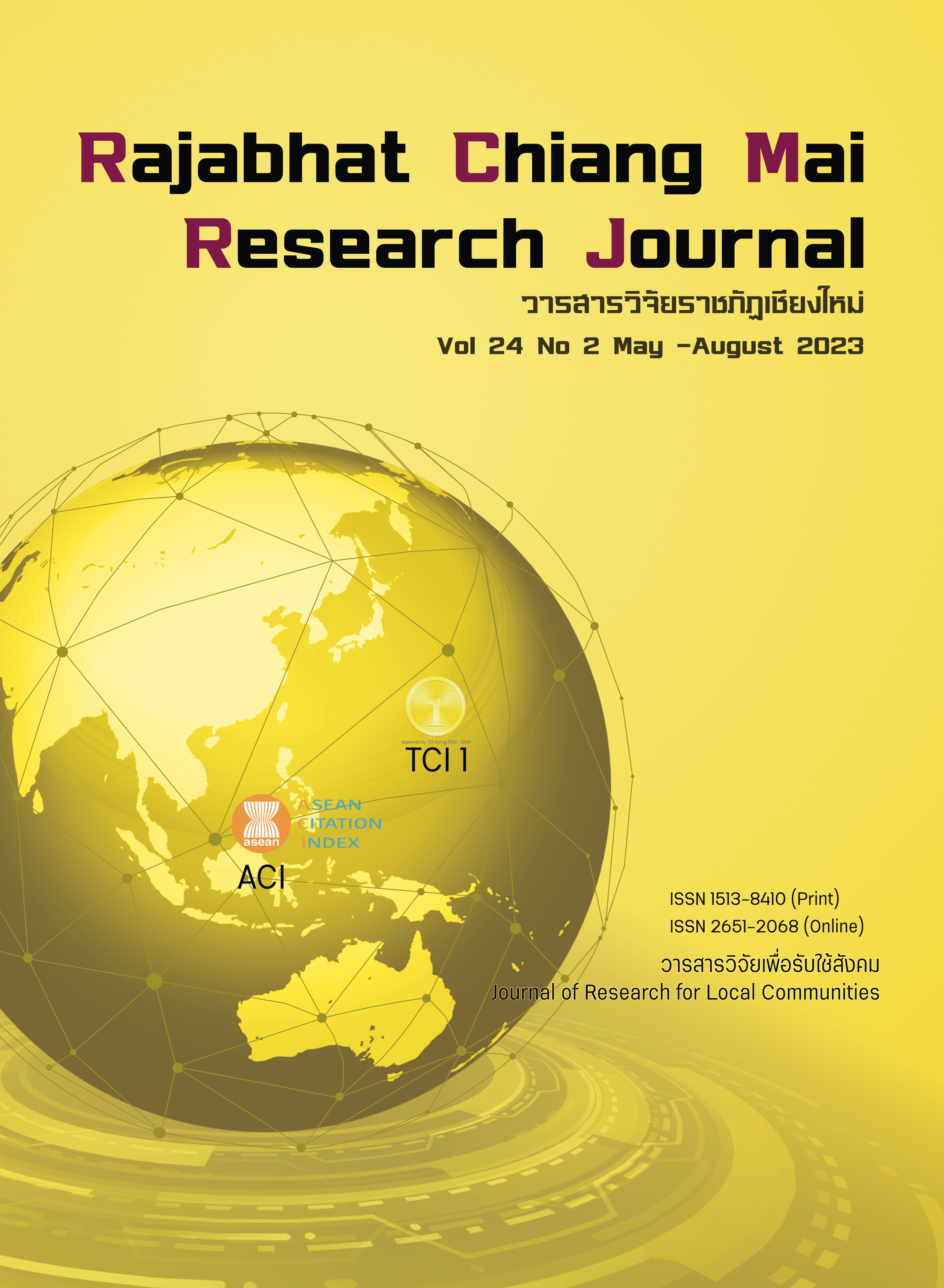Civic Life in the Digital Space of Pre-Service Teachers
DOI:
https://doi.org/10.57260/rcmrj.2023.264223Keywords:
Education, Sustainable development, Social media platform, Digital civic engagement, Digital literacyAbstract
This research investigates the profile and perceptions of respondents towards widely accessible social media platforms to identify key considerations in transforming online engagement into actual civic action. Quantitative in design, the survey of the descriptive method of research is used adopting the developed questions for the study of the United Nations Development Programme on young activists in 2021 to assess the digital engagement of 118 pre-service teachers randomly selected through the multistage sampling method. Utilizing descriptive statistics, social media platforms providing greater opportunities for self-expression such as Facebook and Tiktok are found frequently used for creating and sharing content related to education, and health. Respondents concurred on widespread disinformation online and the complementary nature of civic engagement. Despite the manifested lack of trust and reservations due to the risk of data surveillance and breach, the respondents consider social media platforms as enabling venues for civic engagement. Corresponding policies and programs that institute gender-inclusive, safe, and participatory venues in both digital and traditional forms are necessary means for supporting the youth as key players in nation-building.
Downloads
References
Boler, M., & Davis, R. (2018). The affective politics of the “post-truth” era: Feeling rules and networked subjectivity. Emotion Space and Society, 27, 75-85. https://doi.org/10.1016/j.emospa.2018.03.002
Chang, H., Murimi, I., Jones, C., & Caleb, A. (2018). Relationship between high-risk patients receiving prescription opioids and high-volume opioid prescribers. Addiction, 113(4), 677– 686. https://doi.org/10.1111/add.14068
Crawford, M., & Gressley, D. (1991). Creativity, caring, and context: Women's and men's accounts of humor preferences and practices. Psychology of Women Quarterly, 15(2), 217–231. https://doi.org/10.1111/j.1471-6402.1991.tb00793.x
Custodio, Z. U., Rodriguez-Ortega, R., Rungduin, T. T., Urbiztondo, L. A., Fernandez, E. V. M., & Sabate, R. . (2016) .Impact Evaluation of the NSTP in Promoting Volunteerism towards Nation-Building. AsTEN Journal of Teacher Education, 1(2), 24-38. https://po.pnuresearchportal.org/ejournal/index.php/asten/article/view/299/200
Garcia, J. R., & Rizal, S. A. (2017). Factors affecting the civic engagement of NSTP students in selected universities in Manila. Philippine Journal of Social Sciences and Humanities, 31(1), 63-75.
Garingan, E. (2021). “The Implementation of National Service Training Program.” International Journal of Educational Research Review. Retrieved from www.ijere.com
Gavina, R. F., & Miano, D. D. (2019). Civic engagement among students: A study on the implementation of the NSTP in a state university. Asia Pacific Journal of Multidisciplinary Research, 7(4), 49-54.
Hampton, K., Chul-joo, L., & Ja, H. E. (2011). How new media affords network diversity: Direct and mediated access to social capital through participation in local social settings. New media & society, 13(7), 1031-1049. DOI: 10.1177/1461444810390342
Hargittai, E., & Walejko, G. (2008). The participation divide: Content creation and sharing in the digital age. Information, Communication & Society, 11(2), 239-256. https://doi.org/10.1080/13691180801946150
Jones, R. (2016). The potential of digital platforms in enabling youth engagement with civic life. Journal of Youth and Adolescence, 45(8), 1633-1645. doi: 10.1007/s10964-016-0442-2
Kahne, J., & Bowyer, B. (2017). Educating for democracy in a partisan age: Confronting the challenges of motivated reasoning and misinformation. American Educational Research Journal, 54(1), 3S-34S. https://doi.org/10.3102/00028312166798
Marwick, A. E., & Boyd, D. (2011). I tweet honestly, I tweet passionately: Twitter users, context collapse, and the imagined audience. New Media & Society, 13(1), 114–133. https://doi.org/10.1177/1461444810365313
Pangilinan, K. C., & Loquias, M. J. (2021). Civic engagement of college students before and after taking the NSTP course. Journal of Social Studies Education Research, 12(3), 121-140. https://www.jsser.org/index.php/jsser/issue/view/36
Pew Research Center. (2017). Men more likely than women to have participated in online political discussions and debates. Retrieved from https://www.pewresearch.org/fact-tank/2017/10/24/men-more-likely-than-women-to-have-participated-in-online-political-discussions-and-debates/
Philippine Statistics Authority. (2020). Education and Youth Development: The Philippines Millennium Development Goals Report 2020. Retrieved from https://psa.gov.ph/pmis/home/files/MDG_Report/MDG_Report_2020/MDG_Report_2020_13_Education_and_Youth_Development.pdf
United Nations Development Programme. (2021). Digital engagement of young activists in Europe and Central Asia. Retrieved from https://www.eurasia.undp.org/content/rbec/en/home/library/digital-engagement-of-young-activists-in-europe-and-central-asia.html
Vromen, A., Xenos, M., Loader, B. D., & Drakopoulou, S. (2015). Young citizens in the digital age: Political engagement, young people and new media. Palgrave Macmillan.
Wanta, W., Golan, G., & Lee, C. (2004) .Agenda Setting and International News: Media Influence on Public Perceptions of Foreign Nations. Journalism & Mass Communication Quarterly, 81(2), 364-377 DOI:10.1177/107769900408100209
World Economic Forum, (2016), Digital Skills, Employment and Entrepreneurship. Retrieved from https://www.weforum.org/reports/digital-skills-employment-and-entrepreneurship
Zuñiga, H., et al. (2012). Social media and participatory politics: Civic engagement, discourse, and action. In M.
Consalvo & C. Ess (Eds.), The Handbook of Internet Studies (pp. 143-162). John Wiley & Sons.
Downloads
Published
How to Cite
Issue
Section
License
Copyright (c) 2023 Rajabhat Chiang Mai Research Journal

This work is licensed under a Creative Commons Attribution-NonCommercial-NoDerivatives 4.0 International License.
1. Articles, information, content, images, etc published in the “Community and Social Development Journal” are copyrighted by the Community and Social Development Journal, Chiang Mai Rajabhat University. In order to properly distribute the articles through print and electronic media, the authors still hold the copyright for the published articles under the Creative Commons Attribution (CC BY) license, which allows the re-distribution of the articles in other sources. References must be made to the articles in the journal. The authors are responsible for requesting permission to reproduce copyrighted content from other sources.
2. The content of the articles appearing in the journal is the direct responsibility of the article authors. The editorial board of the journal does not necessarily agree with or share any responsibility.














